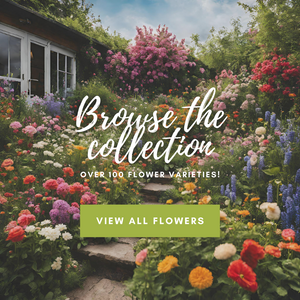
Mulch Your Vegetable Garden
Do you mulch? Why not? I could say “it’s the latest thing” and try to tempt you with a fad. But I won’t, I will give good solid reasons why mulch is important AND can help with maintenance. Win, win!
#1 Build soil, don’t destroy it. Soil is a living thing. Healthy soil is full of microbes, bacterial, fungus, insects and more that break down organic matter and improve soil structure. Yearly tilling of your garden does two things, it kills some of these critters (how would you like to be chopped up with rototiller tines?) and it releases carbon into the atmosphere, but carbon is a whole other post.
When you mulch your garden, there is no need for tilling, plus it adds organic matter that all the soil critters feed on. The critters work this organic goodness into the soil, providing breeding ground for more critters and help to reduce compaction in the soil.
#2 Weed control. Just as you mulch your flower beds to reduce weeds and prevent erosion, mulch in the vegetable garden provide the same result. There are many different techniques out there and each claims a different mulch thickness is needed, but I say at least 3″. A preference would be a mulch of varying sizes, the more large chunks the better, and a mix of materials – compost, wood chips, shredded leaves, etc.
So the next comment I hear is “mulch can get expensive”! Actually, not really. Arborists are always looking for people to take wood chips from pruning jobs. Townships that collect leaves are looking for people to take a truckload (especially if they don’t have a compost facility). And you have lots of mulching material in your own yard and might not know it! Ornamental grasses in your yard? Cut the stems in the fall and use them as garden mulch. Tree leaves? Don’t send them to the curb, shred them and put them on your garden. Grass clippings? In moderation these can be used as garden mulch as well. When vegetable gardens are mulched year after year, the mulch breaks down into the soil – creating a garden soil that is fluffy, easily broken apart in your hand, full of critters and will be the wonderful soil your friends will be jealous of! Your plants will be healthier and you will use less fuels from the rototiller. Happy mulching!
#1 Build soil, don’t destroy it. Soil is a living thing. Healthy soil is full of microbes, bacterial, fungus, insects and more that break down organic matter and improve soil structure. Yearly tilling of your garden does two things, it kills some of these critters (how would you like to be chopped up with rototiller tines?) and it releases carbon into the atmosphere, but carbon is a whole other post.
When you mulch your garden, there is no need for tilling, plus it adds organic matter that all the soil critters feed on. The critters work this organic goodness into the soil, providing breeding ground for more critters and help to reduce compaction in the soil.
#2 Weed control. Just as you mulch your flower beds to reduce weeds and prevent erosion, mulch in the vegetable garden provide the same result. There are many different techniques out there and each claims a different mulch thickness is needed, but I say at least 3″. A preference would be a mulch of varying sizes, the more large chunks the better, and a mix of materials – compost, wood chips, shredded leaves, etc.
So the next comment I hear is “mulch can get expensive”! Actually, not really. Arborists are always looking for people to take wood chips from pruning jobs. Townships that collect leaves are looking for people to take a truckload (especially if they don’t have a compost facility). And you have lots of mulching material in your own yard and might not know it! Ornamental grasses in your yard? Cut the stems in the fall and use them as garden mulch. Tree leaves? Don’t send them to the curb, shred them and put them on your garden. Grass clippings? In moderation these can be used as garden mulch as well. When vegetable gardens are mulched year after year, the mulch breaks down into the soil – creating a garden soil that is fluffy, easily broken apart in your hand, full of critters and will be the wonderful soil your friends will be jealous of! Your plants will be healthier and you will use less fuels from the rototiller. Happy mulching!




Leave a comment